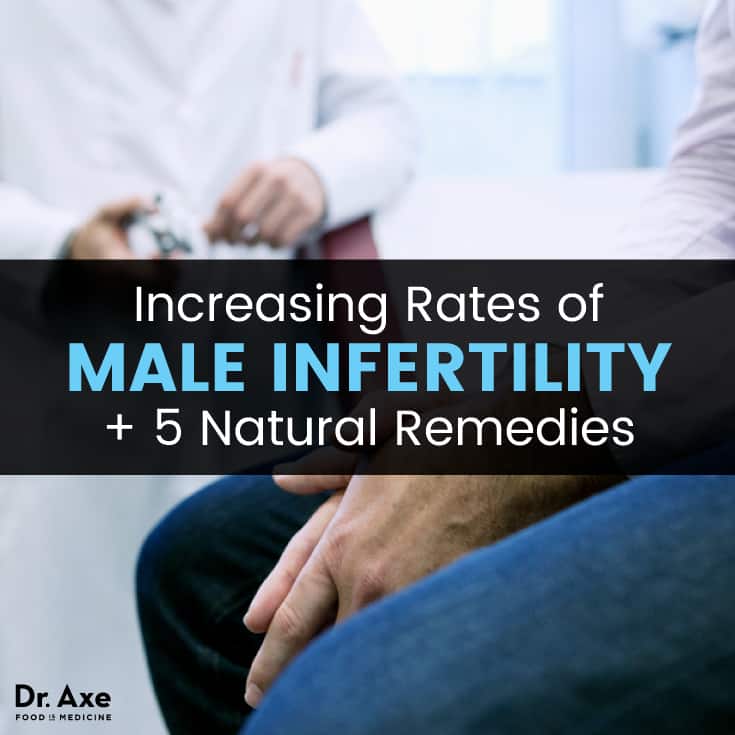This Dr. Axe content is medically reviewed or fact checked to ensure factually accurate information.
With strict editorial sourcing guidelines, we only link to academic research institutions, reputable media sites and, when research is available, medically peer-reviewed studies. Note that the numbers in parentheses (1, 2, etc.) are clickable links to these studies.
The information in our articles is NOT intended to replace a one-on-one relationship with a qualified health care professional and is not intended as medical advice.
This article is based on scientific evidence, written by experts and fact checked by our trained editorial staff. Note that the numbers in parentheses (1, 2, etc.) are clickable links to medically peer-reviewed studies.
Our team includes licensed nutritionists and dietitians, certified health education specialists, as well as certified strength and conditioning specialists, personal trainers and corrective exercise specialists. Our team aims to be not only thorough with its research, but also objective and unbiased.
The information in our articles is NOT intended to replace a one-on-one relationship with a qualified health care professional and is not intended as medical advice.
Increasing Rates of Male Infertility + 6 Natural Remedies
September 25, 2017
 Is a Western lifestyle to blame for increased rates of male infertility? All signs are pointing to yes. According to a recent report, sperm counts of men in North America, Australia, Europe and New Zealand have dropped by more than 50 percent in less than four decades, and show no signs of stopping. Most recently, scientists found a popular over-the-counter painkiller may also be to blame. More on that later.
Is a Western lifestyle to blame for increased rates of male infertility? All signs are pointing to yes. According to a recent report, sperm counts of men in North America, Australia, Europe and New Zealand have dropped by more than 50 percent in less than four decades, and show no signs of stopping. Most recently, scientists found a popular over-the-counter painkiller may also be to blame. More on that later.
But why is this occurring? And can be stopped/slowed down by adopting natural infertility treatments?
Increasing Rate of Male Infertility: What the Study Says
Researchers originally examined more than 7,500 studies published that looked at sperm counts and concentrations between 1973 and 2011. (1) Then, they conducted a meta-analysis of the 185 studies that met their criteria. These included studies of men who either didn’t know if they were fertile — like they’d never tried to have kids — and those who were known to be fertile. They eliminated any studies where men were suspected of being infertile. The studies were spread over the time period and included nearly 43,000 men in 50 different countries.
The findings were startling. The analysis found there was an almost 60 percent decline in the total sperm count over the nearly four decades. Importantly, researchers looked only at studies published after 1995, and it doesn’t seem like the decline in male fertility is slowing down.
Male infertility isn’t just related to procreation, either. Oftentimes, a decrease in sperm count is an indicator of an increased risk in premature death. (2) In fact, the study called it a “canary in the coal mine” for male health. And though the researchers didn’t set out to figure out why sperm counts were decreasing, they floated several theories, including environmental and lifestyle influences.
So what are the causes of male infertility the study suggests? Let’s take a closer look.
Causes of Male Infertility
What are the causes of male infertility? While there are a number of male infertility causes, ranging from hormone imbalances and certain medications to infections and chromosome defects, we’re going to focus on environmental and lifestyle factors today. (3)
For starters, what is the percentage of male infertility? It’s hard to come across hard figures, but studies suggest that in North America, male infertility is between 4 and 6 percent. (4) In cases of couples attempting to conceive, in about one-third of the cases, infertility is caused by male reproductive issues. (5)
What are the causes of male infertility? One of the reasons why so many scientists suspect manmade factors, like lifestyle and environment, for the increasing rate of male infertility is that the changes are happening too quickly to be attributed to genetics. These include both prenatal and adulthood exposure.
Prenatal
Endocrine-disrupting chemicals. Prenatal endocrine disruption because of chemical exposure is one major reason scientists believe male infertility is on the rise. (6, 7) Endocrine-disrupting chemicals, or EDCs, are all around us. They include things like phthalates, triclosan (yes, the stuff in your anti-bacterial gel!) and BPAs.
These substances interfere with our endocrine system, which regulates all of our body’s hormones and biological processes. And when EDCs mess with our endocrine systems, it can have serious developmental, reproductive, neurological and immune effects. Unfortunately, damage is thought to be most serious during prenatal or early pregnancy exposure.
EDCs are especially tricky because even teeny doses of exposure can have serious effects, but it can be years or even decades until the health impact fully manifests.
Smoking. Hopefully, you’re already well aware of the impact that smoking has on your health. In fact, it’s the leading preventable cause of death in America — causing more deaths than HIV, illegal drug use, alcohol use, car accidents and firearm-related incidents combined. (8)
But while smoking as an adult can affect infertility in men (more on that later), prenatal exposure to smoking can play a role, too. One small study found that European men who had prenatal exposure to smoking had a 20 percent lower sperm density than those without. (9) Exposure to second-hand smoke may play a role, too.
Adult life
Ibuprofen. In 2018, Danish researchers published evidence identifying chronic ibuprofen use as a possible male infertility trigger.
Using a combination of a randomized, controlled clinical trial and petri dish testing, scientists found taking over-the-counter ibuprofen messes with healthy testicular function. Using ibuprofen for as little as 14 consecutive days elevating luteinizing hormone levels, disturbing testosterone production. Keep in mind healthy men between the ages of 18 and 35 took part in the human part of the study. They took 600 milligrams of ibuprofen twice a day (or placebo) for six weeks.
Regular use impacted testosterone production by repressing certain endocrine cells in the testes. This stimulates pituitary hormones and the male reproductive system compensates by going into a state of hypogonadism. (10, 11)
Compensated hypogonadism is more prevalent in the elderly and smokers, although it occurs in younger men, too. It may cause: (12)
- Infertility
- Erectile dysfunction
- Depression
- Bone & muscle mass loss
Exposure to pesticides. In the last 40 years, we’ve been exposed to a variety of pesticides that haven’t always been around, like Monsanto Roundup. All of these pesticides are affecting male infertility, and we’re not always sure exactly how, because enough research hasn’t yet been done. Remnants of pesticides can stay on our foods long after the pesticide has been sprayed. There’s also pesticide drift, where the chemicals travel even to foods that haven’t been sprayed with pesticides.
Is it just a coincidence that male infertility has increased in the last four decades, around the same time that powerful pesticides have come into play? It could be, but I find that unlikely.
Smoking. As I mentioned before, smoking affects male infertility. There are more than 4,000 toxins in tobacco smoke, which combine to harm male fertility.
If you’re a smoker, you can expect lower-quality semen, reduced sperm function, a dysfunctional reproductive hormonal system, impaired sperm maturation and other reproductive side effects. (13)
How much you’re smoking matters, too. Heavy smokers are likely to experience more negative effects in their fertility than casual smokers, though, to be clear, any type of smoking can have an effect on male infertility. (14, 15)
Stress. We already know that chronic stress is harmful to your health. Did you know that it also plays a role in a man’s fertility?
Men who are stressed tend to have lower sperm concentrations during ejaculation and reduced sperm quality, which makes it more difficult for a sperm to fertilize an egg. This holds true even once other health issues are accounted for. (16)
Obesity. Obesity has been on the rise in the past few decades, and it’s playing a role in male infertility. While we’ve known for some time that an obese woman may have difficulty conceiving, an obese male partner plays a role, too. It seems that obesity affects the sperm’s ability to fertilize an egg. (17) This is likely due to impaired semen quality.
Obesity comes with its own set of other health issues, too, which can affect male infertility, like hormonal changes and sexual dysfunction. (18)
Conventional Treatment & 5 Remedies for Male Infertility
Can male infertility be treated? The short answer is yes. Conventional treatment for male infertility depends largely on what your healthcare provider deems to be the root cause — if they can determine one.
If there’s been damage to the reproductive organs or there are abnormalities, for example, surgery might be required. Medication can also help treat issues like hormone imbalances, though you might want to try natural methods first. Finally, if nothing seems to work, technology like IVF, or in vitro fertilization, is an option some couples may like to explore.
In general, though, making lifestyle adjustments can have a really positive impact on improving male infertility.
1. Avoid EDCs
While men obviously do not carry babies, if a couple is trying to get pregnant, they should both be avoiding EDCs. The easiest ways to do this are by avoiding plastic, especially when heated, removing BPA from your life (check your canned goods!) and using safe household cleaners. You read more about eliminating EDCs here. While it’s unlikely that you’re going to eliminate all the chemicals from your life, when it comes to these chemicals, every little bit you can avoid really helps.
2. Quit smoking!
Do this whether or not you’re trying to get pregnant! Smoking harms pretty much every single part of your body. Please. Quit. (19) Smokefree.gov has some great resources to help you on your journey.
3. Limit exposure to pesticides
Like EDCs, it’s unlikely you can avoid pesticides completely, but you can reduce your exposure. A great first step is to avoid buying conventional produce that’s on the Dirty Dozen list. While I recommend organic whenever possible, if you’re watching your wallet, these are the fruits and veggies you absolutely want to buy organic.
4. Scale back on stress
If you find yourself constantly wound up, it’s time to put the brakes on stress. These 8 natural stress relievers can really help. Exercise and yoga, acupuncture, meditation and more have been proven to help reduce stress. Not only will this help fertility, but it’ll help improve your overall health and well-being, too.
5. Improve your diet
When it comes to losing weight, diet is crucial. And, surprise, surprise, the same foods that are excellent at treating obesity naturally can also help with male infertility symptoms.
As I’ve outlined in my natural infertility treatment plan, a healing diet is loaded with wild-caught fish, vitamins C and E and fruits and veggies. Combined, these foods help reduce inflammation, promote sperm count and keep hormones regular.
On the other hand, the same things that can pack on the pounds affect fertility as well. This includes high-fat processed meats (yes, like hot dogs), refined sugar and grains. If you’re trying to conceive, you’ll want to avoid alcohol, caffeine and drugs, including marijuana.
6. Opt for natural painkillers
The news of ibuprofen’s link to male infertility took a lot of people by surprise. So the most you can reduce your exposure, the better. But who wants to live in pain, right? The good news is natural painkillers can go a long way in reducing pain. Fixing your posture by strengthening weak muscle and foam rolling and stretching tight ones can help correct back pain. Eating an anti-inflammatory diet and identifying and avoiding food sensitivies can also lower inflammation in the body and ease pain.
Precautions
It’s easy to get discouraged if you’re having trouble conceiving. If you suspect male infertility might be a problem, your best bet is to see a specialist to rule out other causes. A professional will go through your medical history and lifestyle to offer treatment options. Most couples will end up conceiving in about a year, but there are other options available to you as well if that isn’t a possibility.
Final Thoughts
- A recent study found that sperm counts from men in North America, Australia, Europe and New Zealand have dropped by more than 50 percent in the last 40 years.
- The study’s authors believe environmental and lifestyle factors, both prenatal and as adults, are to blame.
- These include endocrine-disrupting chemicals, smoking, pesticides, stress and obesity.
- Making adjustments to your lifestyle can help boost male fertility without medication.
- Seeing a doctor can also help you figure out if male infertility is a problem and what your options are.







